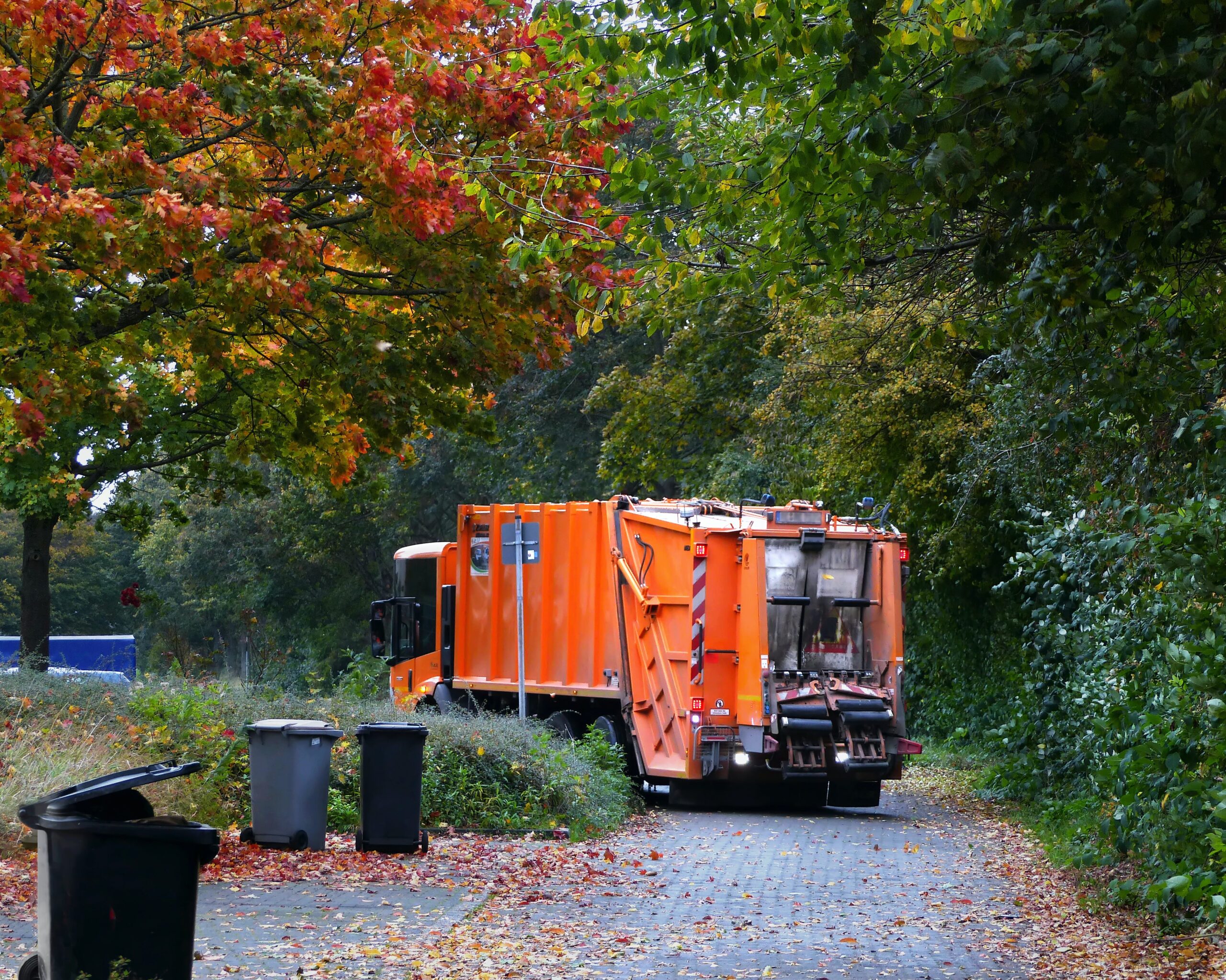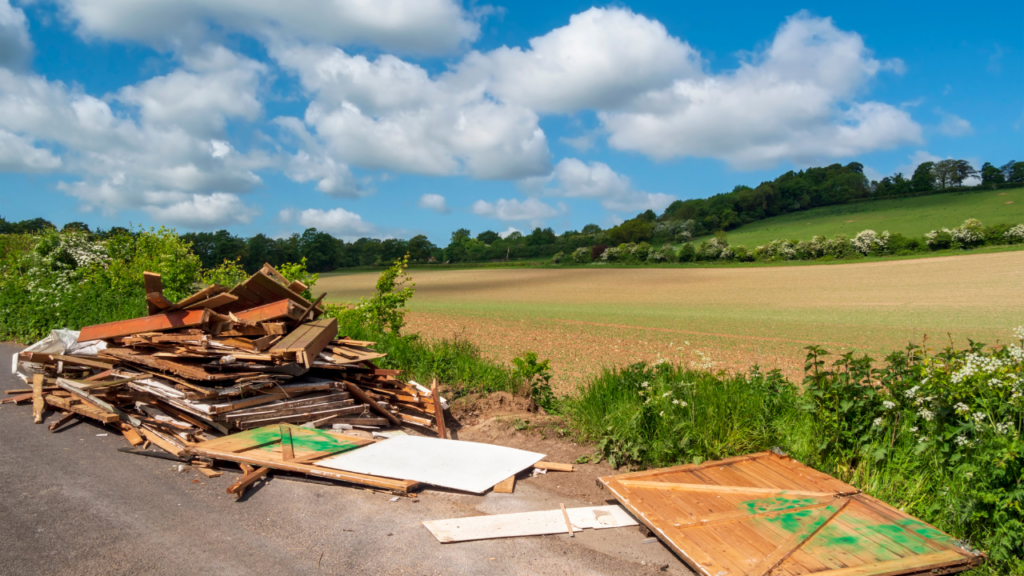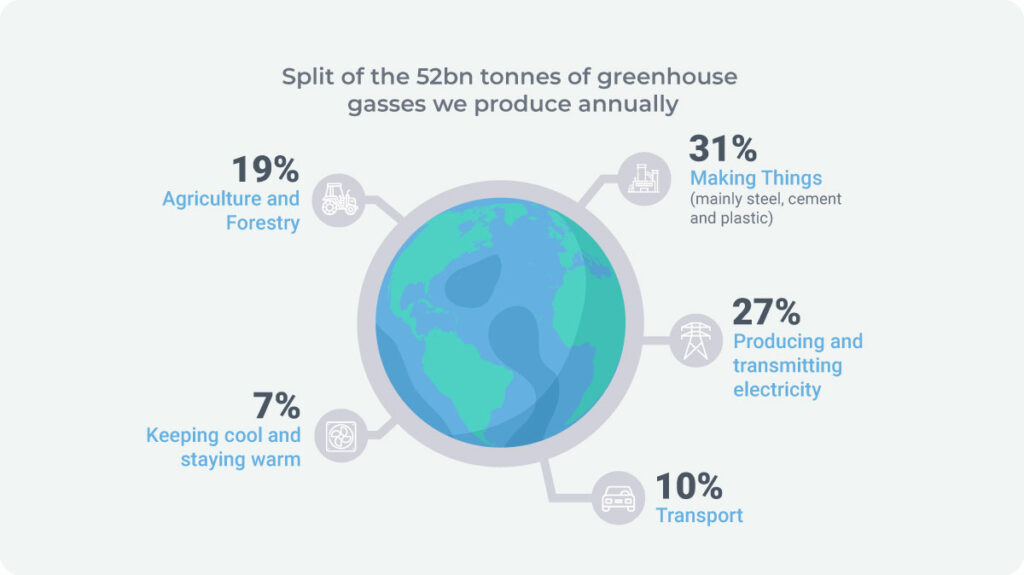All businesses disposing of trade waste have a duty of care and responsibility. Although encouraged to practice sustainable waste disposal methods that minimise the impact on the environment, it’s down to the individual company to ensure a sustainable disposal method is in place.
With environmental pressures becoming increasingly prevalent, companies must adopt a disposal method to align with environmental practices. Likewise, It’s crucial now more than ever that companies plan and arrange a viable recycling service by licensed waste carriers to contribute to net zero goals.¹
Following this, our experts at Envirovue have developed a guide which outlines sustainable trade waste practices, the importance of sustainable trade waste management, and the beneficial factors of adopting a sustainable disposal framework.
What is trade waste?
Trade waste encompasses any waste that is produced by any form of industrial or commercial business activity.
From construction and demolition to hospitality facilities and retail business, trade waste refers to any form of waste or materials that are leftover when something is built, manufactured, or a service is provided.
Disposing of trade waste
Ensuring sustainability is at the forefront of a disposal process is not only financially beneficial, but also fundamental for contributing to the circular economy.
Disposal methods can differ based on the waste category. For example, the disposal priorities for construction and demolition materials may differ from commercial waste, including food and general waste. However, both practices will endeavour to recycle as much as possible with the most sustainable practices.
One of the key characteristics of sustainable waste management is the goal of becoming a circular economy. Therefore, adopting methods that aim to utilise materials, reduce waste long-term, advocate the regeneration of products, and ensure safe and legal practices are carried out is vital.
Recent reports highlight that industrial and commercial sectors produce an estimated 33.8 million tonnes of waste, and the construction industry produces an estimated 53.6 million tonnes. This shows there is vast scope for effective and sustainable waste disposal frameworks to ensure waste can be reused appropriately.
Getting the most from disposed materials
As experts in sustainable waste disposal, and with experience working across many different sectors, we’re committed to driving as much trade waste away from landfill as possible.
When diverting materials for recycling or reuse, we use local operatives and waste disposal sites to offset our carbon footprint, encourage lower carbon emission targets and offset residual emissions. Also, we implement efficient disposal processes that align with individual companies’ net-zero targets.
Ensuring the safe disposal of trade waste
When disposing of any trade waste, it’s essential to handle any hazardous waste responsibly and follow strict regulations. Electrical (WEEE), toxic, flammable, corrosive, and carcinogenic items can be used within many trade sectors, therefore, it’s important any hazardous waste must be disposed of correctly to avoid harm to humans and the environment.
Implementing processes that practice thorough recycling methods will ensure effective segmentation, therefore, avoiding the chance of harmful recycling contamination, and effectively reducing landfill waste.
The benefits of sustainable trade waste
Sustainable trade waste management aims to reduce the number of natural resources consumed, reuse the materials taken from nature, and create as minimal waste as achievable.
With the standard-rated landfill charge increasing from £96.70 in 2021 to now £98.60/tonne (+2%), it’s estimated that landfill taxes will accumulate to a huge £660 billion during 2022-2023. This growth highlights the need for businesses to drive waste away from landfills and instead towards eco-friendly alternatives.
Some of the main benefits linked to achieving long-term trade waste reduction include more efficient use of raw materials whilst also minimising GHG emissions associated with collection, transportation and treatment.
In most instances, segregating different types of waste for recycling without professional assistance would be highly time-consuming, costly, and inefficient. However, with sustainable waste management companies helping businesses implement environmentally friendly procedures, it’s never been easier or more cost-effective to dispose of trade waste ethically.
Importance of sustainable trade waste
Trade waste is one of the most common types of waste and should be handled legally, safely and sustainably.
Adopting a sustainable trade waste management system is critical for eliminating constant environmental pressures and is vital for human and animal health. A well-functioning sustainable waste management system should prioritise processes that embody adaptability and divert dangerous and everyday wastes from inefficient disposal.
When these methods are carried out effectively, this will free up valuable space from landfills, improve energy production, create jobs, and reduce the cost of transportation and business logistics.
For more information on how we can support your sustainable trade waste goals get in touch with our experts!
Sources:






About The Author: Wild PR
More posts by Wild PR